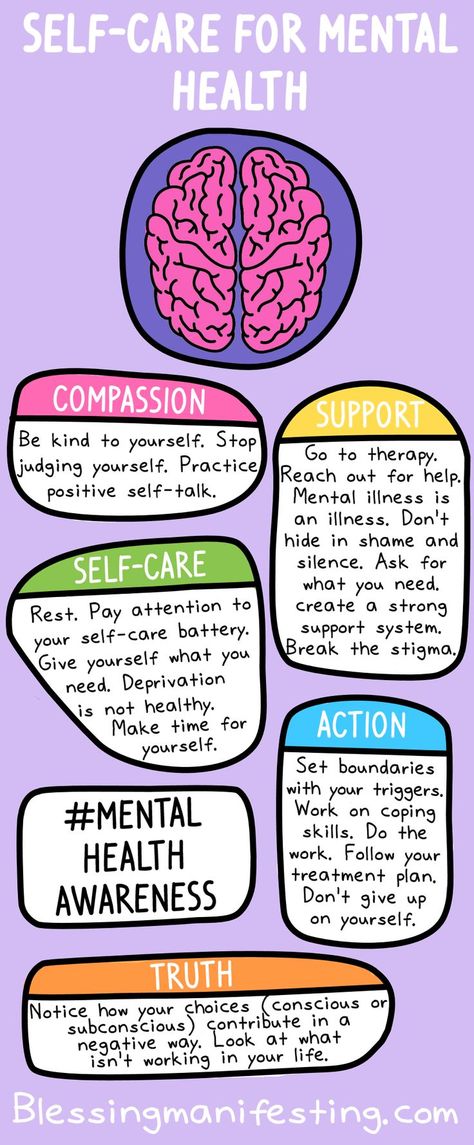Stop it therapy
Bob Newhart As Brief Therapist in Hilarious Spoof: "Stop It!"
Before Fiona Wallice’s three-minute sessions on Web Therapy, there was Bob Newhart as a shrink offering a different brand of brief therapy called “Stop It!”
In the Madtv comedy sketch of several years ago, the shrink played by Bob Newhart is considerably more old-fashioned. Whereas Fiona takes advantage of the internet, not seeing her clients in person, Newhart’s shrink sits behind his desk, his client on the other side. Mo Collins plays the bewildered, not-at-all-amused client.
For those of you short on time, you’ll need over six minutes to watch the full clip below—longer, actually, than the type of therapy advocated by this shrink. If for some reason you’d rather read the script, scroll down below the video:
According to Realtime Transcription, the following is the actual script featuring Bob Newhart as Dr. Switzer:
KATHERINE: Dr. Switzer?
DR. SWITZER: Yes, come in. I’m just washing my hands.
KATHERINE: I’m Katherine Bigmans. Janet Carlisle referred me.
DR. SWITZER: Oh, yes. You dream about being buried alive in a box.
KATHERINE: Yes, that’s me. Should I lay down?
DR. SWITZER: No, we don’t do that anymore. Just have a seat and let me tell you a bit about our billing. I charge five dollars for the first five minutes and then absolutely nothing after that. How does that sound?KATHERINE: That sounds great. Too good to be true as a matter of fact.
DR. SWITZER: Well, I can almost guarantee you that our session won’t last the full five minutes. Now, we don’t do any insurance billing, so you would either have to pay in cash or by check.
KATHERINE: Wow. Okay.
DR. SWITZER: And I don’t make change.
KATHERINE: All right.
DR. SWITZER: Go.
KATHERINE: Go?
DR. SWITZER: Tell me about the problem that you wish to address.
KATHERINE: Oh, okay. Well, I have this fear of being buried alive in a box. I just start thinking about being buried alive and I begin to panic.
Well, I have this fear of being buried alive in a box. I just start thinking about being buried alive and I begin to panic.
DR. SWITZER: Has anyone ever tried to bury you alive in a box?
KATHERINE: No. No, but truly thinking about it does make my life horrible. I mean, I can’t go through tunnels or be in an elevator or in a house, anything boxy.
DR. SWITZER: So, what you are saying is you are claustrophobic?
KATHERINE: Yes, yes, that’s it.
DR. SWITZER: All right. Well, let’s go,Katherine. I’m going to say two words to you right now. I want you to listen to them very, very carefully. Then I want you to take them out of the office with you and incorporate them into your life.
KATHERINE: Shall I write them down?
DR. SWITZER: No. If it makes you comfortable. It’s just two words. We find most people can remember them.
KATHERINE: Okay.
DR. SWITZER: You ready?
KATHERINE: Yes.
DR. SWITZER: Okay. Here they are. Stop it!
KATHERINE: I’m sorry?
DR. SWITZER: Stop it!
SWITZER: Stop it!
KATHERINE: Stop it?
DR. SWITZER: Yes. S-T-O-P, new word, I-T.
KATHERINE: So, what are you saying?
DR. SWITZER: You know, it’s funny, I say two simple words and I cannot tell you the amount of people who say exactly the same thing you are saying. I mean, you know, this is not Yiddish, Katherine. This is English. Stop it.
KATHERINE: So I should just stop it?
DR. SWITZER: There you go. I mean, you don’t want to go through life being scared of being buried alive in a box, do you? I mean, that sounds frightening.
KATHERINE: It is.
DR. SWITZER: Then stop it.
KATHERINE: I can’t. I mean it’s —
DR. SWITZER: No, no, no. We don’t go there. Just stop it.
KATHERINE: So, I should just stop being afraid of being buried alive in a box?
DR. SWITZER: You got it. Good girl. Well, it’s only been three minutes, so that will be three dollars.
KATHERINE: Actually, I only have five so —
DR. SWITZER: Well, I don’t make change.
KATHERINE: Then I guess I’ll take the full five minutes.
DR. SWITZER: Fine. All right. What other problems would you like to address?
KATHERINE: I’m bulimic. I stick my fingers down my throat.
DR. SWITZER: Stop it! Are you a nut of some kind? Don’t do that.
KATHERINE: But I’m compelled to. My mom used to call —
DR. SWITZER: No, no. We don’t go there.
KATHERINE: But I —
DR. SWITZER: No, we don’t go there either.
KATHERINE: But my horoscope did say —
DR. SWITZER: We definitely don’t go there. Just stop it.What else?
KATHERINE: Well, I have self-destructive relationships with men.
DR. SWITZER: Stop it! You want to be with a man, don’t you?
KATHERINE: Mm-hmm. Mm-hmm, yes.
DR. SWITZER: Well, then, stop it. Don’t be such a big baby.
KATHERINE: I wash my hands a lot.
DR. SWITZER: That’s all right.
KATHERINE: It is?
DR. SWITZER: I wash my hands all the time. There’s a lot of germs out there. Don’t worry about that one.
Don’t worry about that one.
KATHERINE: I’m afraid to drive.
DR. SWITZER: Well stop it. How are you going to get around? Get in the car and drive you, you kook. Stop it.
KATHERINE: You stop it. You stop it.
DR. SWITZER: What’s the problem, Katherine?
KATHERINE: I don’t like this. I don’t like this therapy at all. You are just telling me to stop it.
DR. SWITZER: And you don’t like that?
KATHERINE: No, I don’t.
DR. SWITZER: So you think we are moving too fast, is that it?
KATHERINE: Yes. Yes, I do.
DR. SWITZER: All right. Then let me give you ten words that I think will clear everything up for you. You want to get a pad and a pencil for this one?
KATHERINE: All right.
DR. SWITZER: Are you ready?
KATHERINE: Mm-hmm.
DR. SWITZER: All right. Here are the ten words: Stop it or I’ll bury you alive in a box!
Breaking Up With Your Therapist? Here's Exactly How to Do It
Health
Related Condition Centers
- Mental Health
No, you shouldn’t ghost them.
By Kimberly Truong
John Gall
It’s a little twisted how breaking up with your therapist is one of those things it would be really nice to process with...a therapist. Most of us don’t like to hurt other people’s feelings, and having to break up with a therapist might make you worry you’re doing just that. Think of it this way: Breaking up with your therapist releases both of you from a situation that may no longer be productive, Tamar Chansky, Ph.D., psychologist and author of Freeing Yourself From Anxiety, tells SELF.
“As much as therapists are absolutely human beings and can have their feelings hurt, [you can] shift the frame of what this is about,” Dr. Chansky says. “It’s not about hurting that person, it’s about what you need.”
Below, you’ll find some indicators that you should consider breaking up with your therapist, plus some tips to make it as painless as possible for everyone involved.
Here are a few signs that it might be time to break up with your therapist.
1. Your sessions aren’t making you feel better overall.
Ideally, you would always walk away from therapy feeling like your therapist has lifted some of your burden, not added to it. In reality, it’s normal to sometimes leave therapy feeling upset due to the emotions the process can stir up. That’s different from feeling distressed every time (or nearly every time) you leave because your therapist isn’t listening to you, isn’t sensitive enough to your needs, or isn’t helping you practice using some tools to deal with this exact kind of emotional discomfort.
“If you’re routinely leaving a session feeling worse than when you arrived, that’s a red flag,” Dr. Chansky says.
2. You don’t feel as though you’re growing.
After entering therapy, you’ll hopefully see some kind of change in yourself over time, Marni Amsellem, Ph.D., a clinical psychologist at Smart Health Psychology, tells SELF. It’s not an instantaneous thing; it depends on the kinds of issues you’re trying to work through, the form of therapy in which you’re engaging, how dedicated you are, how proficient your therapist is, how often you see them, and more.
It’s not an instantaneous thing; it depends on the kinds of issues you’re trying to work through, the form of therapy in which you’re engaging, how dedicated you are, how proficient your therapist is, how often you see them, and more.
There’s no hard and fast rule for how long it takes for therapy to feel like it’s working, but Dr. Amsellem says that generally “you should see some growth or change from therapy rather quickly.” It might even be the encouragement of knowing you’re working on yourself with a professional you click with emotionally. If you don’t feel like your therapist is motivated or capable enough to help you progress, it might be time to move on.
Rachel B., 28, had been seeing her therapist for a year and was craving actionable advice that she wasn’t receiving. It was one of the reasons she eventually dumped her therapist. “She would let me talk through things on my own without reacting much,” Rachel says. “In comparison to other therapists [I’ve had], it didn't really feel like the best approach for me. ”
”
3. You don’t trust your therapist.
One of the main points of therapy is to open up. If you find yourself holding back from telling your therapist about your thoughts or behaviors, it can impede your mental and emotional growth and create an ill-fitting dynamic, Dr. Chansky says.
Keep in mind that part of your therapist’s job is to hold you accountable, which might be uncomfortable at times. It can feel really bizarre to essentially pay someone to call you out on your shit when necessary. You may be a little reluctant to get totally honest about aspects of your life that feel hard or shameful. That’s why it’s on your therapist to create a safe, nonjudgmental space where you feel you can bring up these topics anyway. If you can’t, how are you going to work through them?
4. It’s almost impossible to see your therapist regularly.
Therapy problems can be logistical too. “Maybe you’re having trouble scheduling with this person—they’ve switched to no evening hours, but that’s all you have available,” Dr. Amsellem says. “If you’re unable to keep appointments, it might be time to look elsewhere.”
Amsellem says. “If you’re unable to keep appointments, it might be time to look elsewhere.”
5. Your therapist isn’t sensitive to the differences in identity between the two of you.
You might be seeing a therapist whose identity differs from yours in nearly every possible way without it being much of an issue. But if you’re in therapy to discuss aspects of your identity that your therapist doesn’t share, such as your race, gender, or religion, your therapist needs to bring an extra level of awareness and sensitivity to your sessions.
“If you feel like they’re not really valuing the knowledge that you have about your culture and your background, bring it up,” says Dr. Chansky. “It’s okay to decide that isn’t going to be helpful to you.”
Luis M., 29, has been in this situation. “I'm Puerto Rican, I talk with my hands,” Luis tells SELF. Luis also happens to have ADHD and says that a former therapist routinely interpreted his hand gestures as “fidgeting” rather than an expression of his culture. “She did not understand that at all,” he says. “I was so frustrated with constantly having to be like, ‘Hey, this is the way I talk. It's cultural. Let's move on.’ ”
“She did not understand that at all,” he says. “I was so frustrated with constantly having to be like, ‘Hey, this is the way I talk. It's cultural. Let's move on.’ ”
6. Your therapist isn’t receptive to constructive criticism.
You should feel comfortable bringing up constructive criticism with your therapist—for example, that it makes you feel unimportant or rushed when they consistently start appointments late.
“In good therapy, it’s ideal that [your therapist] doesn’t get mad at you and thanks you for speaking up for yourself,” Dr. Chansky says. If they get defensive or completely ignore your criticism or requests, that’s absolutely a valid reason to seek therapy elsewhere.
7. You feel as if you no longer need therapy.
“We’re not always ending therapy because it stopped working,” Dr. Amsellem says. “Maybe we’re ending it because it has worked.”
If you feel as if you’ve learned all that you can from your therapist, it might be time to discuss leaving therapy altogether.
Ready to break up with a therapist? Talk to them first.
Instead of just ghosting, try bringing up the issues you’re having to see if you can solve them without moving on to someone else.
Most Popular
Dr. Amsellem suggests starting with something like, “There’s something I wanted to talk about. My goals from therapy are [insert said goals here]. I’m concerned we’re not meeting them together. Is there any way we can get closer to helping me achieve these goals?”
As part of that conversation, it may help to set hyper-specific benchmarks of progress that you’d like to see in a certain amount of time to help you decide whether or not you should quit seeing your therapist for good. You may want to do this with your therapist or privately, depending on the situation.
If your therapist doesn’t seem receptive to your points or you find that nothing changes even after bringing it up, it’s okay to try to find another therapist. Depending on the urgency of the issues you’re working on, you might want to lock in another therapist before quitting your current one, Dr. Chansky says.
Depending on the urgency of the issues you’re working on, you might want to lock in another therapist before quitting your current one, Dr. Chansky says.
“Sometimes it can be comforting to check out another therapist before moving on, to make sure you’re covered,” she says. “It really depends on how acute the issues are that you’re dealing with. If it’s an acute situation, like serious depression, it’s going to be really important.” (You shouldn’t abruptly stop seeing a psychiatrist who manages any mental health medications you take or decide to stop taking medication on your own. Both of those situations can compromise your safety and require input from an expert first.)
Even if you’ve decided you’ve made enough progress to quit therapy or that you need a therapist who is logistically easier to see, you should talk to your therapist to see what they think or if they have any advice. They may be able to refer you to someone who might be a better fit logistically or in terms of therapeutic approach.
Break up with your therapist with an actual conversation if you’ve been seeing them regularly for over a month.
Honestly, this part is a lot like ending a relationship with someone you’re dating. The length of time you’ve been together determines a lot about how you should break up with them.
Dr. Amsellem says it’s best to do the breaking up in person during a session if you’ve been seeing your therapist for longer than a few weeks. Not only does it help give you both closure, but it’s a good challenge if you have trouble ending things or feel like you’re upsetting someone. “A lot of people are very conflict-avoidant, and this is a good skill to practice,” Dr. Amsellem says.
Ideally, you would have already told your therapist why you weren’t satisfied with your sessions, so the breakup shouldn’t come as a surprise. Here are a few suggestions for what to say, courtesy of the experts:
- “I want to end our work together because I have different goals right now.
 ”
” - “I really appreciate the work we’ve done together. I’m realizing I need something different now, but I appreciate your willingness to help me.”
- “I think I’ve made a lot of progress in our time together, and I feel that it’s time for me to move on.”
- “A few weeks ago, I mentioned [insert concerns here]. I don’t see enough of a change for it to make sense that we continue our sessions.”
Most Popular
Depending on the state of your mental health and the progress you have or haven’t made, your therapist may be fine with this or they may want to talk it through a bit to better understand your position and offer their professional feedback on your choice.
If you’ve only been seeing your therapist for a few weeks, Dr. Amsellem says you probably don’t need to have a session to officially end your time together. Instead, ending treatment via email or a phone call is typically fine. However, it can be especially helpful in this case to mention your concerns to your therapist instead of simply deciding not to see them. At only a few weeks in, you’re still getting to know each other. Your therapist may be able to more easily course correct or explain why you’re not yet seeing huge changes, for instance.
At only a few weeks in, you’re still getting to know each other. Your therapist may be able to more easily course correct or explain why you’re not yet seeing huge changes, for instance.
Even if you’re absolutely certain ghosting is the right choice for your situation, you should at least call the front desk and cancel any upcoming appointments so you don’t get charged a no-show fee.
At the end of the day, remember that therapy is for
you.If you feel like you’re not getting what you need out of therapy, that’s often reason enough to decide to try seeing someone else. Therapists are meant to have your best interests in mind. Even if a certain therapist isn’t a match for you, if they’re good at their job, they shouldn’t take the breakup personally.
See more from our Guide to Caring for Your Mental Health here.
Related:
- 12 Questions to Ask Your New Therapist Before You Decide If They're the One
- How Can You Tell If Therapy Is Actually Working?
- How to Know If Group Therapy Might Be Right for You
Kimberly Truong is a New York-based freelance writer covering health and wellness. Her coverage particularly focuses on mental health and all the ways it impacts our lives.
Her coverage particularly focuses on mental health and all the ways it impacts our lives.
SELF does not provide medical advice, diagnosis, or treatment. Any information published on this website or by this brand is not intended as a substitute for medical advice, and you should not take any action before consulting with a healthcare professional.
Topicsmental healthTherapy
More from Selfof the Code of Criminal Procedure of the Russian Federation Article 445. Termination, modification and extension of the application of a compulsory measure of a medical nature \ ConsultantPlus
Code of Criminal Procedure of the Russian Federation Article 445. Termination, modification and extension of the application of a compulsory measure of a medical nature
assistance in hospital conditions, as well as at the request of the person to whom a compulsory measure of a medical nature has been applied, his lawyer or legal representative, the court terminates, changes or extends for the next 6 months the application of a compulsory measure of a medical nature to this person. nine0003
nine0003
(as amended by Federal Laws No. 323-FZ of November 29, 2010, No. 317-FZ of November 25, 2013)
(see the text in the previous edition)
Compulsory measures of a medical nature are considered by the court that issued the decision on its application, or by the court at the place of application of this measure.
3. The court notifies the person to whom the compulsory measure of a medical nature has been applied, his legal representative, the administration of the psychiatric hospital, the defense counsel and the prosecutor about the appointment of a criminal case for hearing. nine0003
(as amended by Federal Law No. 323-FZ of November 29, 2010)
(see the text in the previous edition)
4. Participation of a defense counsel and a prosecutor is obligatory. A person in respect of whom the issue of terminating, changing or prolonging the application of a compulsory measure of a medical nature to him must be granted the right to personally participate in the court session, if his mental state allows him to participate in the court session. Non-appearance of other persons does not prevent the consideration of the criminal case. nine0003
Non-appearance of other persons does not prevent the consideration of the criminal case. nine0003
(Part 4 as amended by Federal Law No. 323-FZ of November 29, 2010)
(see the text in the previous edition)
. If the medical opinion is in doubt, the court, at the request of the persons participating in the court session, or on its own initiative, may appoint a forensic examination, request additional documents, and also interrogate the person in respect of whom the issue of terminating, changing or extending the application of compulsory measures of a medical nature, if possible due to his mental condition. nine0003
6. The court terminates or changes the application of a compulsory measure of a medical nature in the event of such a mental state of a person, in which there is no need to apply a previously prescribed measure or it becomes necessary to prescribe another compulsory measure of a medical nature. The court extends compulsory treatment if there are grounds for extending the application of a compulsory medical measure.
7. On the termination, change or extension, as well as on the refusal to terminate, change or extend the application of a compulsory measure of a medical nature, the court shall issue a decision in the deliberation room and announce it in the court session. nine0003
8. The decision of the court may be appealed in the appellate and cassation procedure or in the supervisory procedure.
(as amended by Federal Laws No. 323-FZ of November 29, 2010, No. 433-FZ of December 29, 2010) measures of a medical nature \ ConsultantPlus
of the Criminal Code of the Russian Federation Article 102. Extension, modification and termination of the application of compulsory medical measures
1. The extension, change and termination of the application of compulsory medical measures are carried out by the court on the proposal of the administration of the medical organization providing compulsory treatment, or the penitentiary inspectorate that controls the application of compulsory medical measures, based on the conclusion of the commission of psychiatrists.
(as amended by Federal Laws No. 14-FZ of February 29, 2012, No. 317-FZ of November 25, 2013)
(see the text in the previous version)
2. A person who has been prescribed a compulsory measure of a medical nature is subject to an examination by a commission of psychiatrists at least once every six months to decide whether there are grounds for making a submission to the court to terminate the application or to change such a measure. Examination of such a person is carried out at the initiative of the attending physician, if in the course of treatment he came to the conclusion that it is necessary to change the compulsory measure of a medical nature or terminate its application, as well as at the request of the person himself, his legal representative and (or) close relative. The application is submitted through the administration of the medical organization that provides compulsory treatment, or the penitentiary inspection that controls the application of compulsory medical measures, regardless of the time of the last examination. If there are no grounds for terminating the application or changing the compulsory medical measure, the administration of the medical organization providing compulsory treatment, or the penitentiary inspectorate exercising control over the application of compulsory medical measures, shall submit a conclusion to the court for the extension of compulsory treatment. The first extension of compulsory treatment may be made six months after the start of treatment, in the subsequent extension of compulsory treatment is carried out annually. nine0003
If there are no grounds for terminating the application or changing the compulsory medical measure, the administration of the medical organization providing compulsory treatment, or the penitentiary inspectorate exercising control over the application of compulsory medical measures, shall submit a conclusion to the court for the extension of compulsory treatment. The first extension of compulsory treatment may be made six months after the start of treatment, in the subsequent extension of compulsory treatment is carried out annually. nine0003
(as amended by Federal Laws No. 14-FZ of February 29, 2012, No. 317-FZ of November 25, 2013)
(see the text in the previous edition)
2.1. Regardless of the time of the last examination and the decision taken to terminate the application of coercive medical measures, the court, on the basis of a petition filed no later than six months before the expiration of the term for the execution of the sentence, by the administration of the institution executing the sentence, appoints a forensic psychiatric examination in respect of the person specified in paragraph "e" of the first part of Article 97 of this Code, in order to resolve the issue of the need to apply compulsory medical measures to him during the period of parole or during the period of serving a more lenient type of punishment, as well as after serving the sentence. The court, on the basis of the conclusion of a forensic psychiatric examination, may impose a compulsory measure of a medical nature, provided for in paragraph "a" of the first part of Article 99 of this Code, or terminate its application.
The court, on the basis of the conclusion of a forensic psychiatric examination, may impose a compulsory measure of a medical nature, provided for in paragraph "a" of the first part of Article 99 of this Code, or terminate its application.
(Part 2.1 was introduced by the Federal Law of 29.02.2012 N 14-FZ)
3. The change or termination of the application of a compulsory measure of a medical nature is carried out by the court in the event of such a change in the mental state of a person, in which there is no need to apply a previously prescribed measure or it becomes necessary to prescribe another compulsory measure of a medical nature.
4. In the event of the termination of the use of compulsory treatment in a medical organization providing psychiatric care in an inpatient setting, the court may transfer the necessary materials in relation to the person who was in compulsory treatment to the federal executive body in the field of healthcare or the executive body of the constituent entity of the Russian Federation in the healthcare sector to resolve the issue of treating this person in a medical organization providing psychiatric care, or referring this person to an inpatient social service institution for people suffering from mental disorders, in the manner prescribed by the legislation in the field of health protection.












